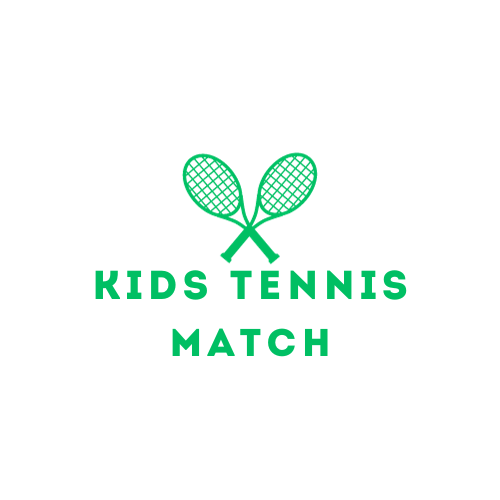How To Enter ITF Junior Tournaments?
Have you ever wondered how to compete in ITF junior tournaments? If you’re a young tennis player looking to take your skills to the next level and experience the thrill of competitive matches, you’ve come to the right place! In this detailed guide, you will learn everything you need to know about entering ITF junior tournaments and navigating the world of junior tennis competitions.
Understanding ITF Junior Tournaments
Before diving into the process of entering ITF junior tournaments, it’s essential to have a solid understanding of what these tournaments entail. ITF junior tournaments are international tennis competitions for players under the age of 18, providing young athletes with valuable experience and exposure to higher levels of competition.
Age Categories
ITF junior tournaments are typically divided into different age categories based on the age of the players. The main age categories include:
- Under 18
- Under 16
- Under 14
- Under 12
Players are placed in these categories based on their age as of a specific date each year. It’s important to know which age category you belong to before entering ITF junior tournaments.
Tournament Levels
ITF junior tournaments are also categorized based on their level of significance and competitiveness. The main tournament levels are:
- Grade A: The highest level of junior tournaments with the most ranking points and toughest competition.
- Grade 1: Top-level tournaments just below Grade A events, offering a high level of competition and ranking points.
- Grade 2, Grade 3, Grade 4, Grade 5: Increasingly lower levels of tournaments based on competition and ranking points.
Understanding the age categories and tournament levels will help you determine which tournaments to enter based on your skill level and goals.
Becoming ITF Junior Ranked
To compete in ITF junior tournaments and gain access to higher-level events, it’s essential to become ITF junior ranked. ITF junior rankings are based on a player’s performance in sanctioned tournaments and serve as a key factor in determining tournament entry and seeding.
Earning Ranking Points
Players earn ranking points by participating in and performing well in ITF junior tournaments. The number of points awarded depends on the tournament’s level and the player’s results. Winning matches and progressing deep into tournaments will earn you more ranking points and improve your ITF junior ranking.
Checking Your Ranking
You can check your ITF junior ranking on the official ITF World Tennis Tour Juniors website. It’s important to monitor your ranking regularly to track your progress, determine your eligibility for certain tournaments, and set realistic goals for improvement.
Importance of ITF Junior Ranking
Having a solid ITF junior ranking is crucial for gaining entry into prestigious tournaments, receiving seedings in draws, and catching the attention of college coaches and scouts. By focusing on improving your ranking, you’ll open up more opportunities to test your skills against top junior players from around the world.

Registering for ITF Junior Tournaments
Now that you have a good understanding of ITF junior tournaments and the importance of your ITF junior ranking, let’s walk through the process of registering for these tournaments.
ITF Junior Tournament Calendar
The first step in entering ITF junior tournaments is to access the ITF junior tournament calendar. You can find the tournament calendar on the official ITF World Tennis Tour Juniors website, which lists all upcoming tournaments, their locations, dates, and tournament levels.
Selecting Tournaments
Once you’ve reviewed the tournament calendar, you’ll need to select the tournaments you wish to enter based on your age, ranking, and goals. Consider factors such as tournament level, location, and competition to make informed decisions about which events to participate in.
Entry Deadlines
Each ITF junior tournament has specific entry deadlines that you must adhere to in order to secure your spot in the tournament. It’s important to note these deadlines and submit your entry well in advance to avoid missing out on the opportunity to compete.
Entry Process
To enter an ITF junior tournament, you will need to complete the online entry form provided on the tournament’s official page. The entry form will require you to provide personal information, your ITF junior ranking, and any other relevant details required for registration.
Entry Fee
Most ITF junior tournaments have an entry fee that players must pay upon registration. The entry fee helps cover the costs of organizing the tournament, providing facilities, and awarding prizes. Be prepared to pay the entry fee when submitting your tournament entry.
Preparing for ITF Junior Tournaments
Once you’ve successfully registered for an ITF junior tournament, it’s time to start preparing for the competition. Proper preparation is crucial for performing your best and making the most of your tournament experience.
Training and Conditioning
Leading up to the tournament, focus on your training and conditioning to ensure that you’re in top physical and mental shape. Practice your strokes, footwork, and strategies under match-like conditions to build confidence and readiness for competitive play.
Travel Arrangements
If the tournament is located in a different city or country, make all necessary travel arrangements well in advance. Book your flights, accommodations, and transportation to the tournament venue to avoid any last-minute stress or disruptions to your schedule.
Equipment Check
Before heading to the tournament, double-check that you have all the necessary tennis equipment and gear. Ensure that your racquets are strung, your tennis shoes are in good condition, and you have an adequate supply of balls and clothing for the matches.
Mental Preparation
In addition to physical training, focus on mentally preparing yourself for the challenges of tournament play. Visualize success, stay positive, and develop a pre-match routine that helps you stay focused and calm under pressure.

During the ITF Junior Tournament
When you arrive at the tournament venue and begin competing, there are several key things to keep in mind to make the most of your ITF junior tournament experience.
Match Scheduling
Pay attention to the tournament schedule to know when your matches are scheduled and plan your warm-up and preparation accordingly. Be on time for your matches, and communicate with tournament officials if there are any scheduling conflicts or issues.
Warm-Up Routine
Before each match, engage in a thorough warm-up routine to prepare your body and mind for the upcoming competition. Focus on loosening up your muscles, practicing your strokes, and mentally gearing up for the intensity of match play.
On-Court Etiquette
During your matches, it’s important to conduct yourself with professionalism and respect for your opponents, officials, and the rules of the game. Shake hands before and after matches, follow proper court etiquette, and handle yourself with grace and sportsmanship at all times.
Post-Match Reflection
After each match, take the time to reflect on your performance, identify areas for improvement, and celebrate your successes. Whether you win or lose, there are valuable lessons to be learned from every match that can help you grow as a player and competitor.
Advancing Your Junior Tennis Career
Participating in ITF junior tournaments is a significant step in advancing your junior tennis career and pursuing your long-term goals in the sport. Here are some additional tips to help you navigate the world of junior tennis and maximize your potential as a player.
Seek Coaching and Mentorship
Work with experienced coaches and mentors who can provide guidance, feedback, and support as you progress in your tennis journey. Seek out coaches who understand the demands of junior tennis and can help you develop the skills and mindset needed to succeed.
Set Realistic Goals
Establish clear, measurable goals for your junior tennis career, whether they involve improving your ranking, winning a specific tournament, or earning a college tennis scholarship. Setting realistic goals will give you a sense of direction and motivation to push yourself to new heights.
Balance Tennis and Academics
Maintain a healthy balance between your tennis commitments and academic responsibilities to ensure long-term success both on and off the court. Prioritize your education, stay organized with your schoolwork, and communicate with teachers and coaches to manage your time effectively.
Stay Committed and Resilient
Playing junior tennis can be challenging and demanding, requiring dedication, resilience, and a positive mindset to overcome obstacles and setbacks. Stay committed to your training, maintain a growth mindset, and embrace the journey of becoming the best tennis player you can be.
By following these guidelines and tips, you can navigate the process of entering ITF junior tournaments with confidence and purpose, setting the stage for a rewarding and successful junior tennis career. Remember to stay focused, work hard, and enjoy the journey of competing against the best junior players in the world. Good luck!
